Algeria is best known for being filled with legendary landscapes that include perfectly preserved Roman ruins and the Sahara Desert. Visitors can take in sights that excite the eyes and enchant the soul.
The country sits in the very north of Africa in the Maghreb Region. As the continent’s largest country, Algeria is easily accessible from Europe. The diverse landscape gives travelers a little taste of everything as they travel from the Mediterranean to the Atlas Mountains and the Sahara Desert.
The ancient cities of Algiers and Constantine are major hotspots, as are Timgad and Djemila, which are the preserved Roman sites. The unique history of the country means that many cultures have left their mark to increase Algeria’s diversity and made it an enigma worth exploring.
Ya Marhaba – Welcome to Algeria!
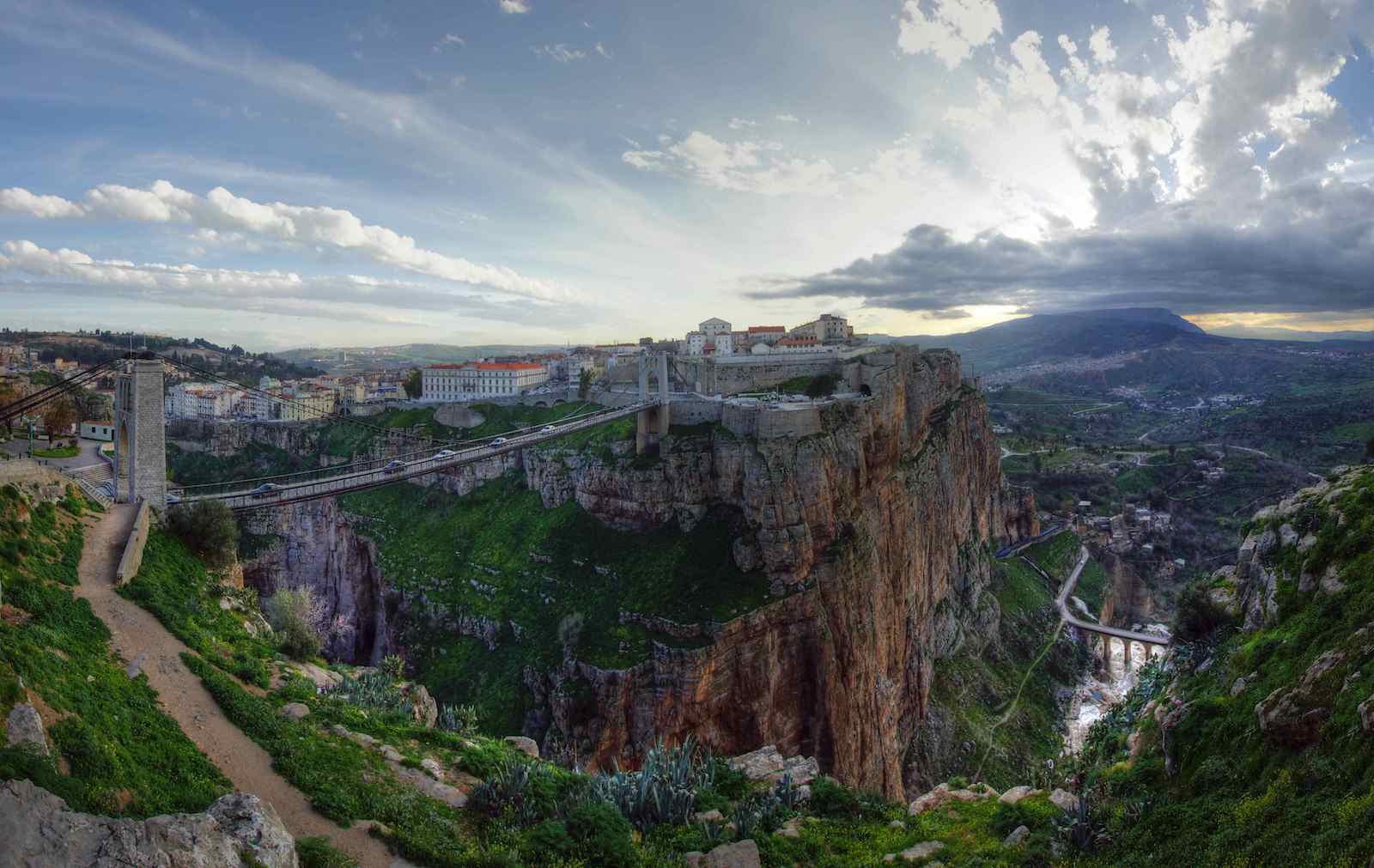
Algiers is the capital of Algeria and the largest city in the country. Home to a contrast of past and present that’s strongly divided by the local geography, you’ll see modern architecture hugging the coast while the old part of the capital rests up the steep hillsides.
A kasbah sits like a crown and overlooks the city’s impressive layout. With the Bay of Algiers, there are plenty of places for visitors to explore between the sea and sky.
- Culture and Language
- Spending Budget
- How to Get Around
- Top Cities to Visit
- Points of Interest
Culture and Language
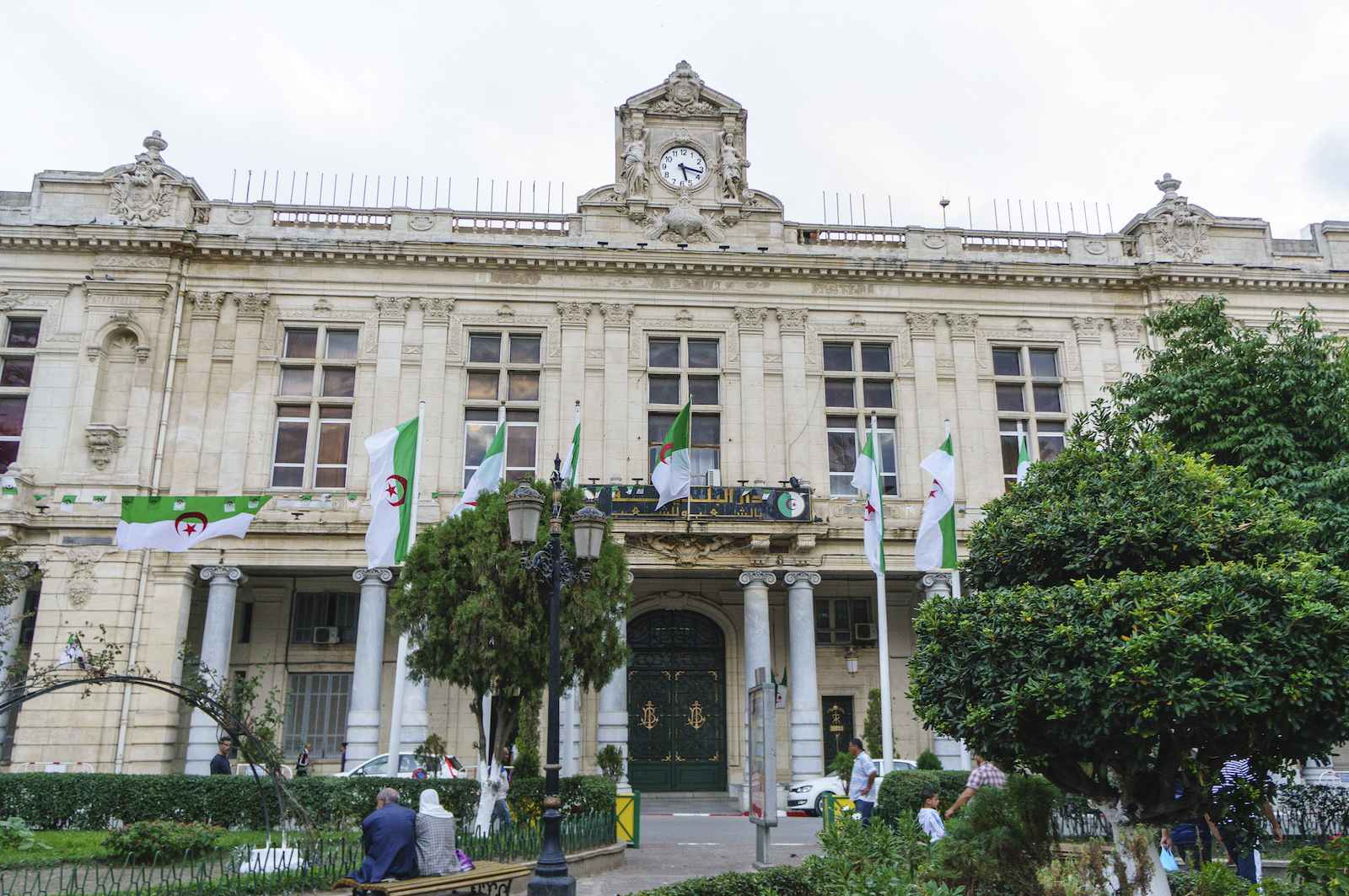
Due to its geographical location in Northern Africa, Algeria’s history and culture are diverse as people often used the region as an area of transit. As people moved between Europe, the Middle East, and Africa, the country was influenced by groups and empires like the Carthaginians, Vandals, and Romans.
The Berber people also have a strong cultural history in Algeria, as their influence over all of Northern Africa is prominent. In more modern history, the French began colonizing the country in the 19th century, however, they were ultimately unsuccessful.
The rise of nationalism created the National Liberation Front which began its program of resistance. The most famous depiction of this was immortalized in the film, The Battle of Algiers (Gillo Pontecorvo, 1966), which highlight Italian neorealism in cinema. Since its independence, Algeria has worked hard to become stable.
For 20 years, Abdelaziz Bouteflika was president but he was ultimately voted out in 2019. The change within the government started political protests as the transition between presidents began. The current elected president is Abdelmadjid Tebboune.
Although a culturally diverse nation, Algeria is a predominantly Muslim country with an estimated 99% of the country’s 44.62 million citizens practicing.
Official Language
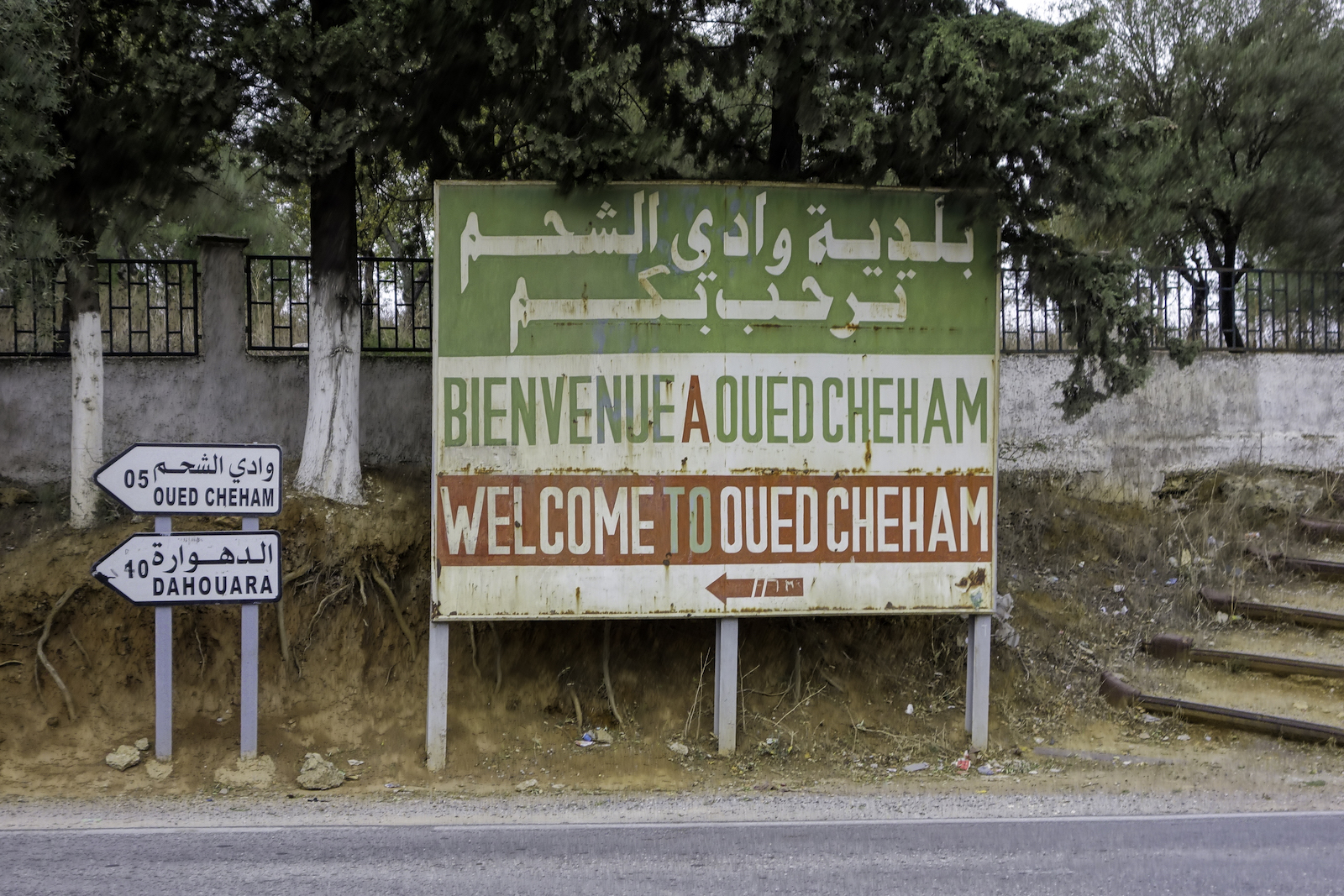
The Berber culture is still reflected in the country today, as Tamazight (Berber) became a national language in 2002. Arabic is the other official language in the country and is used by the government, media, and educational institutions. Algerian Arabic is also popular and spoken by up to 80% of the population.
French is also a widely understood language due to the days of past colonialism and is frequently taught as a secondary language in school. There are some street signs that will also be translated into French alongside Arabic. English is not very popular in Algeria and it’s estimated that only 5% of the population is even partially fluent.
Due to this, many travelers won’t be able to rely on English while traveling, although you may hear it in urban areas or major cosmopolitan centers.
Spending Budget

Algeria is a country where you can travel on a limited budget or go for a luxury vacation. Most travelers will choose to hit the middle ground for safety and are likely going to spend large portions of their budget on good accommodations and safe transportation.
But by planning ahead, you can save some money. The most important part of your budget will be the airfare, accommodation, food, drink, and transportation.
Airfare
The majority of travelers will fly into Algeria, but there are some who arrive by cruise ship or cross over from Tunisia. While the land border with Tunisia is open, those with Morocco, Libya, Mauritania, and Mali are closed.
As most people fly into Algeria, we will discuss the cost of airline tickets. The average cost of a flight from the United States to Algeria is under one thousand dollars, however, you can find deals that can cut that price in half. Additionally, depending on when and how far in advance you book, you can see a reduction in costs.
The tourist high season runs from October to March when the temperatures are cooler but mostly sunny. Summer is not a popular time to visit and many tour operations will shut down due to the intense heat, which can reach as high as 118° F.
Accommodations
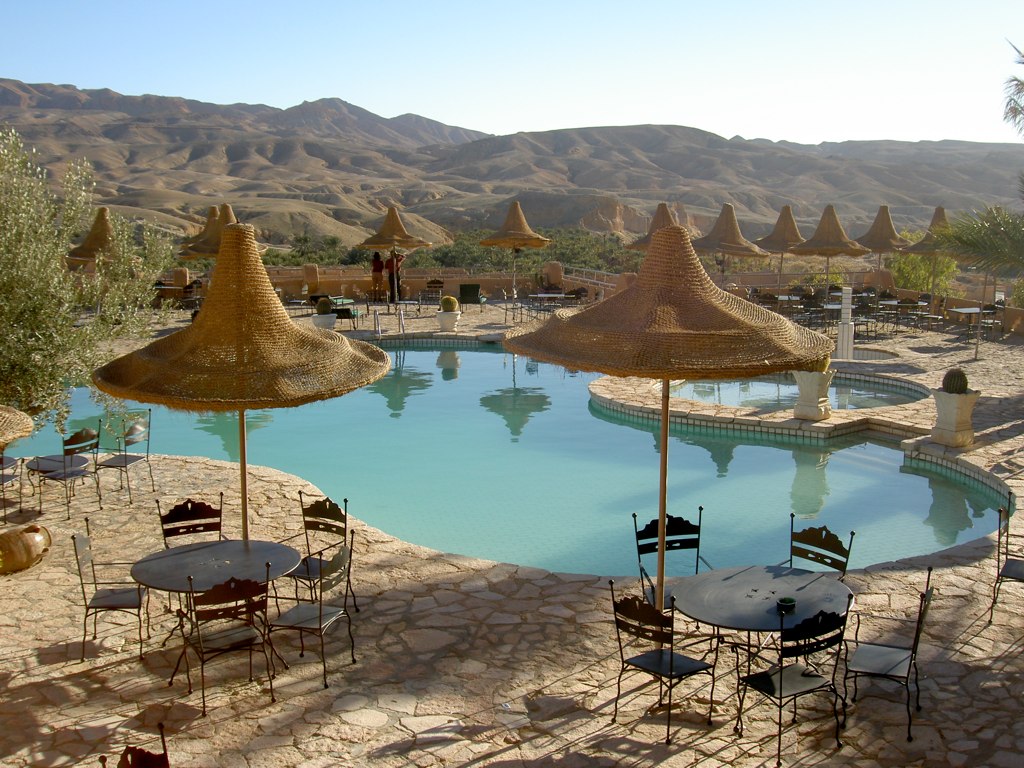
Accommodation is another large portion of your spending budget because there are no options like hostels and guesthouses available in Algeria. Instead, you will have to stay at a hotel. A budget hotel will be moderately priced while mid-range options will cost around double the price.
Luxury locations can cost hundreds but will provide the nicest amenities. Furthermore, Airbnb is another option, with many listings being comparable to a mid-range hotel.
Algerian Food
The good news is that once you’ve decided where to stay for the duration of your trip, you get to connect with the local culture by eating the food. With affordable prices, you can try many tasty dishes without spending too much. Algerian cuisine is known for its spices and love of meat, chicken, fish, grains, vegetables, and fruit for an all-around tasty diet.
Considered a national dish, Couscous is a staple within the country and is often served with fruit or in a stew. Jwaz is a slow-cooked vegetable dish, which is more common in rural areas.
Roasted lamb, which is called mechoui is also very popular and eaten during festivities. Mkartfa is a tomato pasta that is also served with meat and vegetables. Finally, ghrayef is Algeria’s take on pancakes and is often consumed as breakfast or a snack.
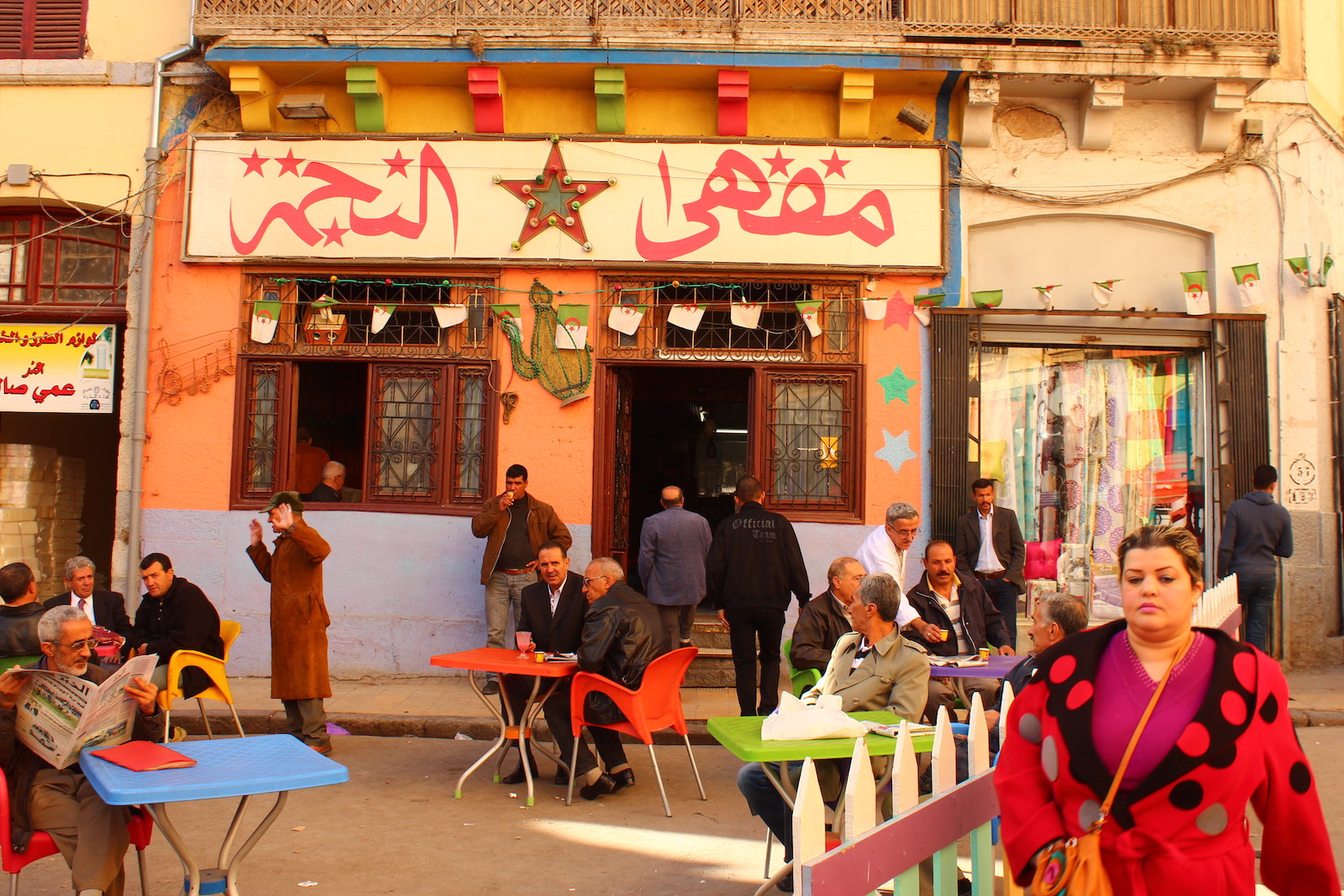
Dining Out
No matter what dish gets you drooling, you can try a variety of flavors for an affordable price. Street food is the cheapest, only costing a few dollars for each dish. A two-course dinner at a local establishment will still be modesty priced while dining in tourist hotspots and nicer restaurants will cost a bit more.
Fine dining will be the most expensive, however, it’s still within a reasonable range if you want to splurge for a few dinners. Additionally, for many travelers, drinking is also an important factor to calculate in. But be aware that since Algeria is a Muslim country, you’re likely to find only a small selection of alcoholic beverages in touristy areas.
Beers are the most common drink and won’t cost more than a few dollars, but options like cocktails may be more costly.
How to Get Around

As a large country, transportation in Algeria is another important part of your budget you’ll need to consider. Algeria is not the easiest country to get around and safety is often a top priority. The most common ways to get around Algeria are by air and road.
Flights and Trains
Domestic flights are the fastest way to get around the country and are deemed to be safe, however, tickets can range drastically. To cut down on costs, taking a train may be a better option. With a small network in the north, there are long, overnight rides that are very affordable.
Unfortunately, these trains are only in the north, meaning you’ll need to find other transportation to other parts of the country. While they are safe to use, but as with any public transportation, you should stay aware and alert to your surroundings.

Driving
The roadways are also in great condition in Algeria, but safety can be a major concern. Terrorists are known for faking checkpoints, acting as police, or creating roadblocks. For this reason, Algeria passed a law that made it illegal to travel alone in specific areas, like the desert.
For travelers, driving is sometimes the only way to get somewhere and to most tourist areas. For safety reasons, it’s better to hire a private driver. Costing a bit over one hundred dollars a day, this option will allow you to take in the sites with peace of mind. Rentals are about half the price but can be dangerous depending on where you are going.
Top Cities to Visit
As such a large country, there are a lot of Algerian cities to explore. Boasting different architecture and landscapes, every location will feel as though you’ve been transported to an entirely new area. For those having trouble deciding where to visit, here are the top city destinations for travelers in Algeria.
Algiers
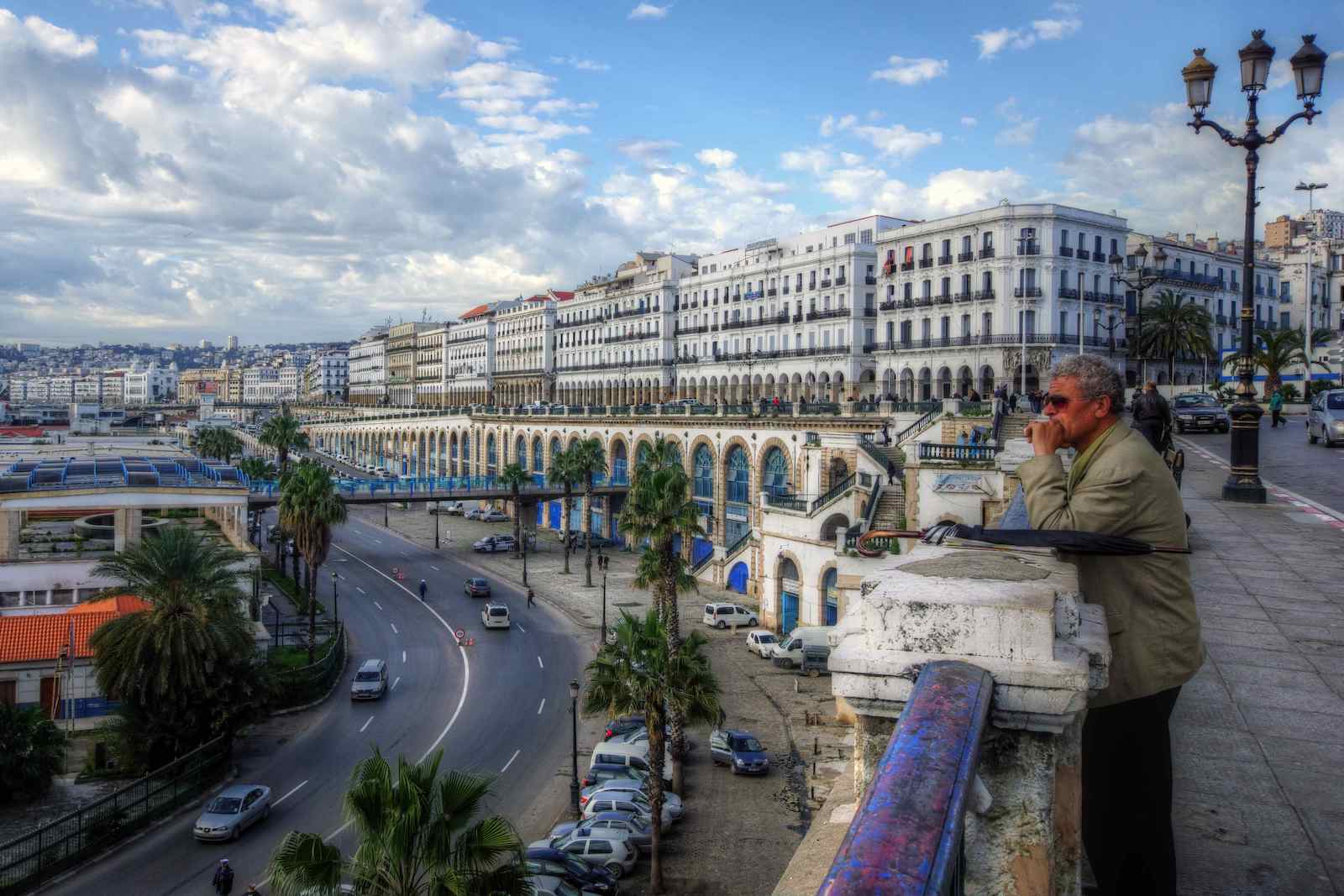
As the capital of Algeria, Algiers holds the country’s past, present, and future. Often the first location for tourists to as they leave the international airport, the city has diverse architecture, culture, and entertainment. A great starting point for your adventure, Algiers leaves a tasteful introduction to this dynamic country.
Atakor
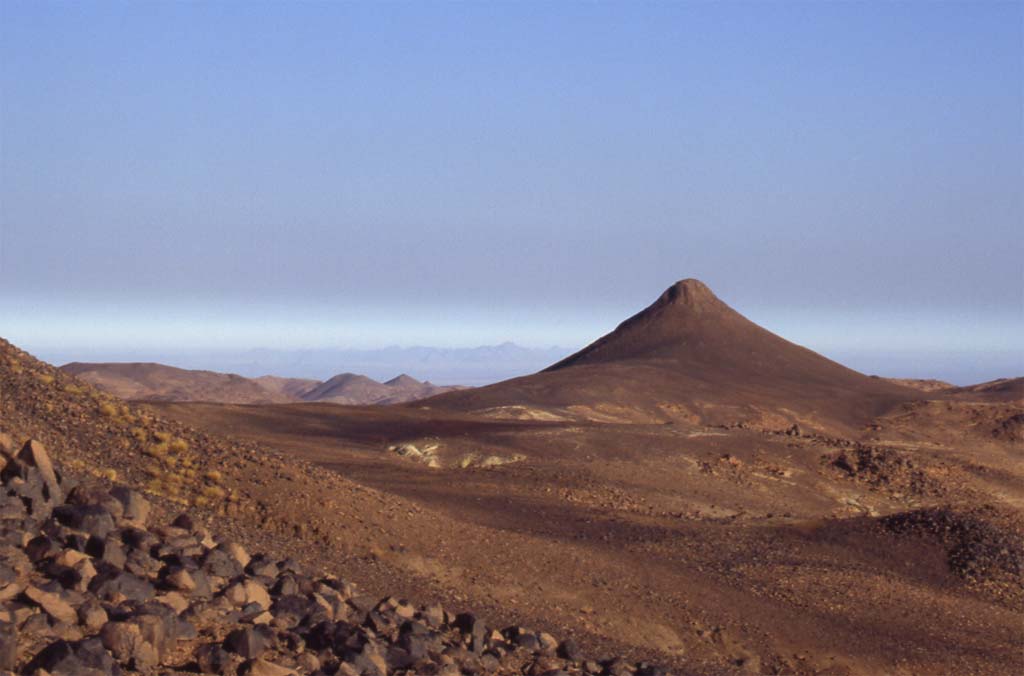
The unique landscape around Atakor and the plateau often bring tourists who are looking for adventure. As a remote location, Atakor and the Ahaggar National Park are difficult to reach but are the best reward. At the end of the plateau, visitors are granted an amazing view of the rugged peaks and harsh valleys.
Oran
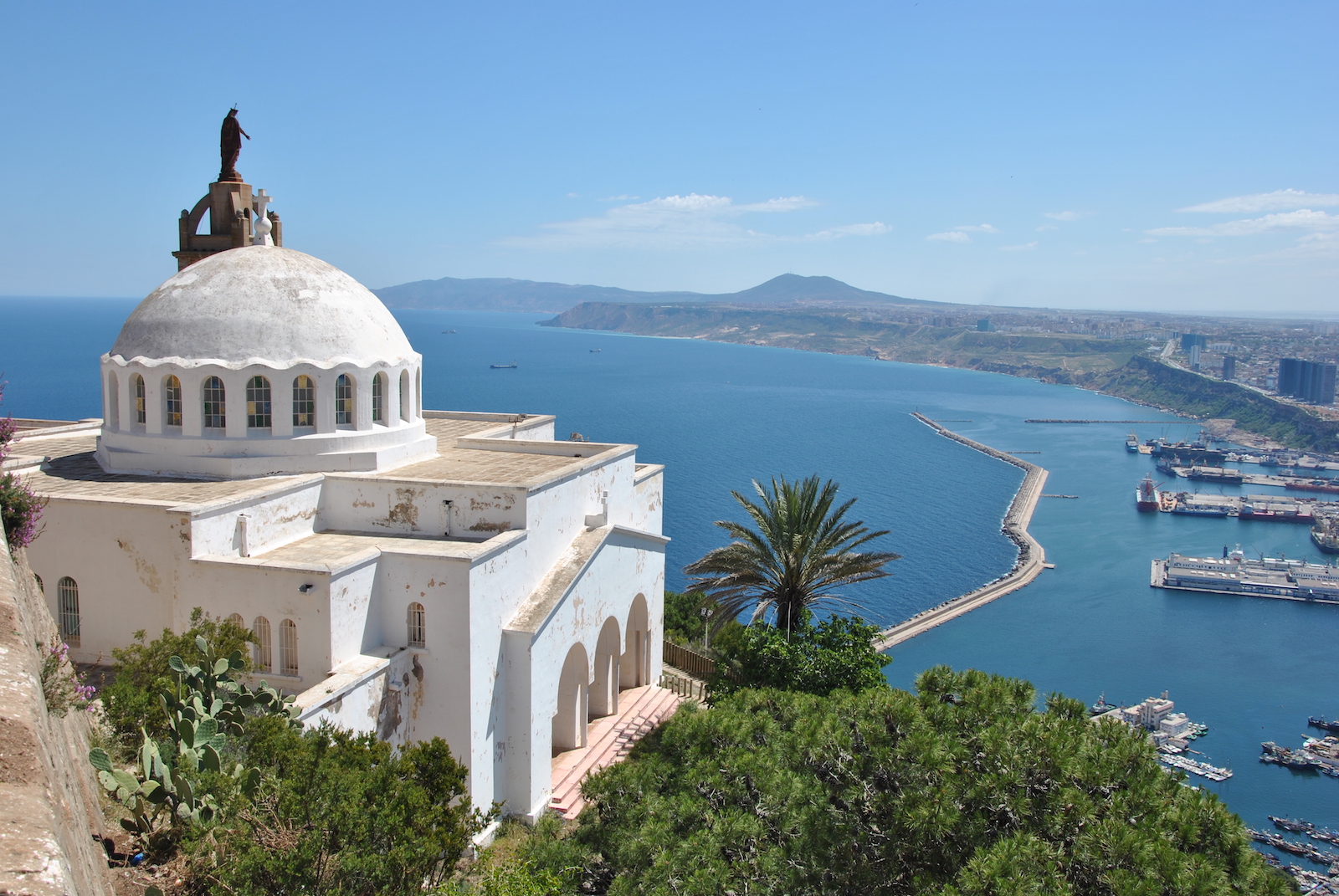
Oran is often considered to be one of the most beautiful cities in Algeria and is known for its seaside location. The stunning architecture only adds to the enchantment of the area and you can explore the mosques or kasbah.
With plenty to do from partying in the streets to spending time in nature, Oran has the best all-around entertainment for tourists.
Annaba
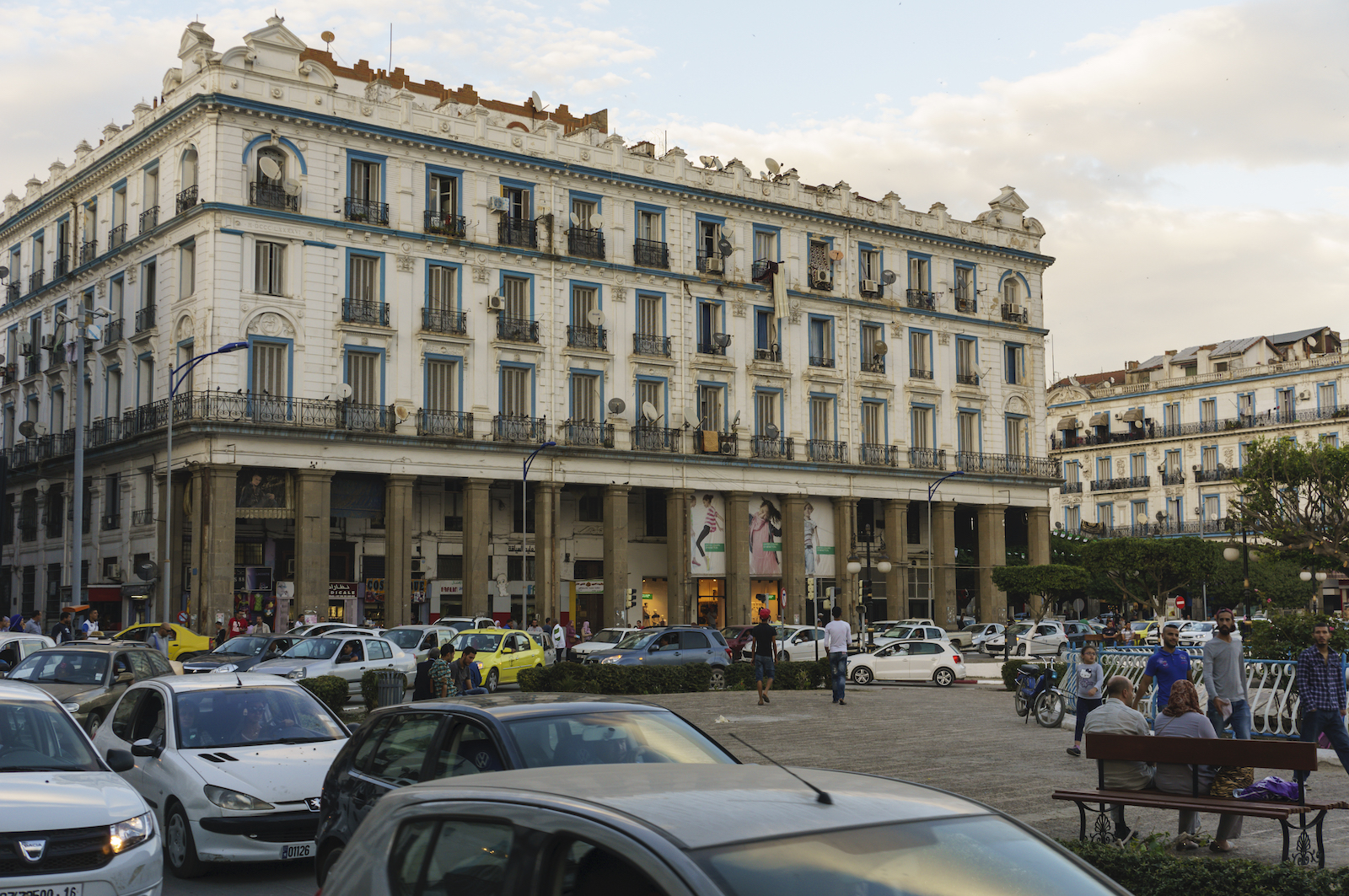
The ruins of the Hippo Regius, bordered by olive trees and the sea, are what make Annaba a popular tourist destination. Besides the stunning location, the ruins are also visited because of their mosaics, trophies, villas, and temples.
Constantine
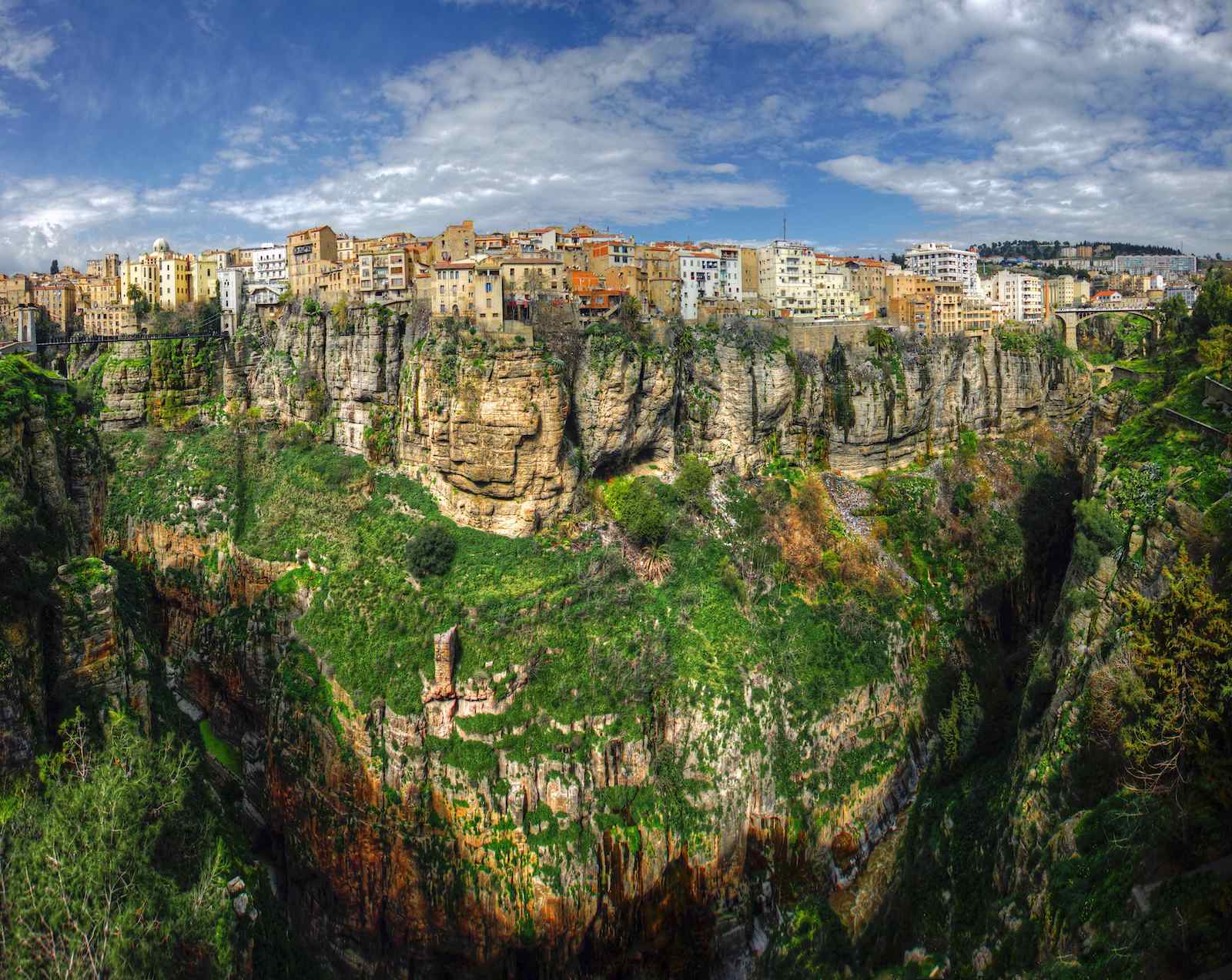
Located on dramatic cliffs, Constantine was once an important city for the Romans. The entrance is granted by a large bridge, which leads you to the ancient buildings.
While this place is mostly known for its historical significance, there isn’t much else to do besides perusing the area. For this reason, most visitors spend only a few days in Constantine.
Ghardaia

This Algerian city requires you to book a tour to enter, but once you have been accepted, you can explore the old streets, mosque, and local markets. With a cluster of 5 towns, Ghardaia is diverse and in some ways, it feels like a world of its own.
Points of Interest
Algeria is also filled with various points of interest that are hotspots for tourists. With stunning ruins, coastal destinations, and markets, you’ll have your itinerary packed full of adventure. To help you narrow down a few places to go, here are the top sites to visit in Algeria.
Tlemcen
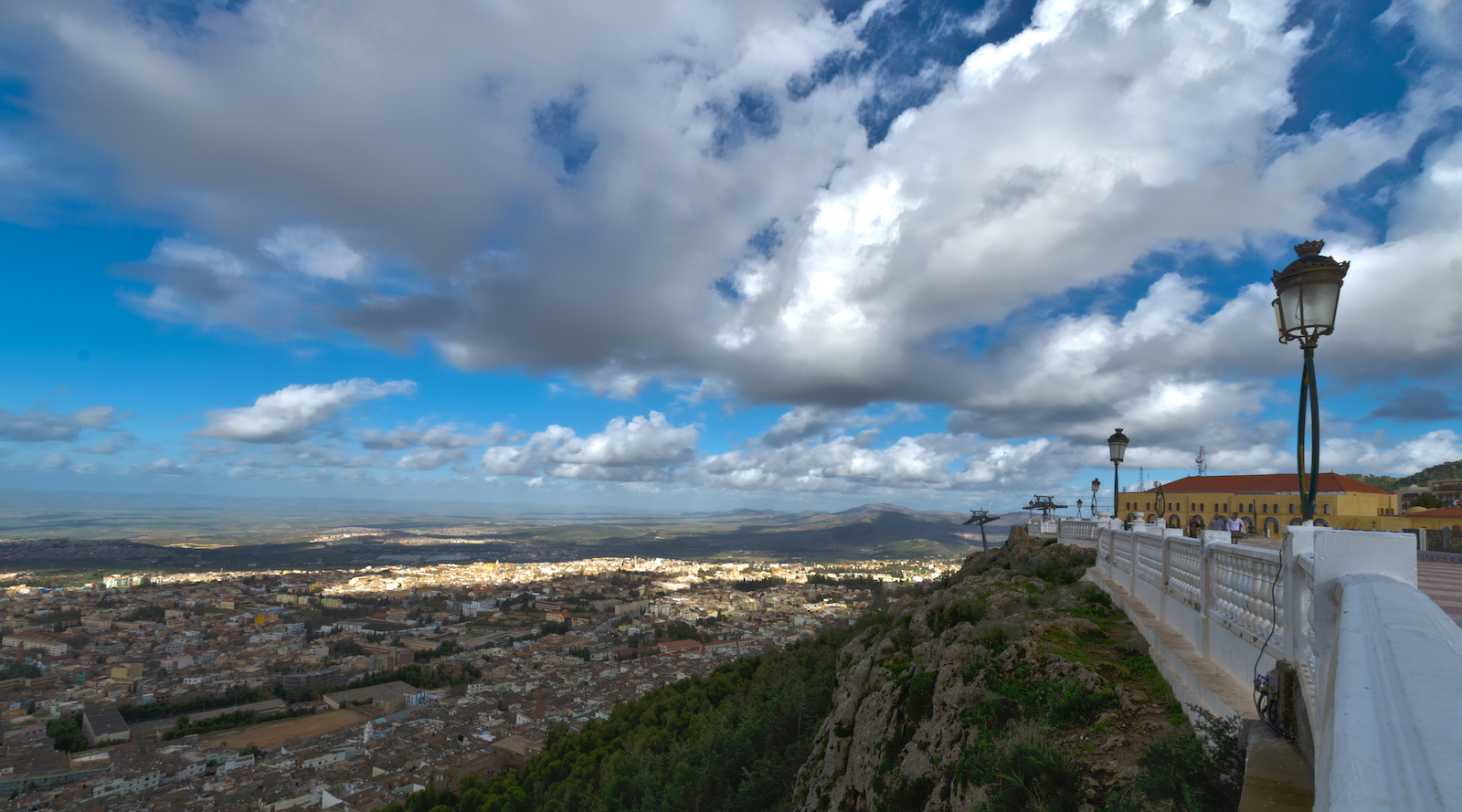
Tlemcen is well known for its Moorish architecture, as well as its modern advancements. Popular sites within the city include the Great Mosque and Eiffel Bridge. They are also working on constructing a large university campus. With close proximity to the Tlemcen National Park, the city is also a popular stopover point.
El Oued
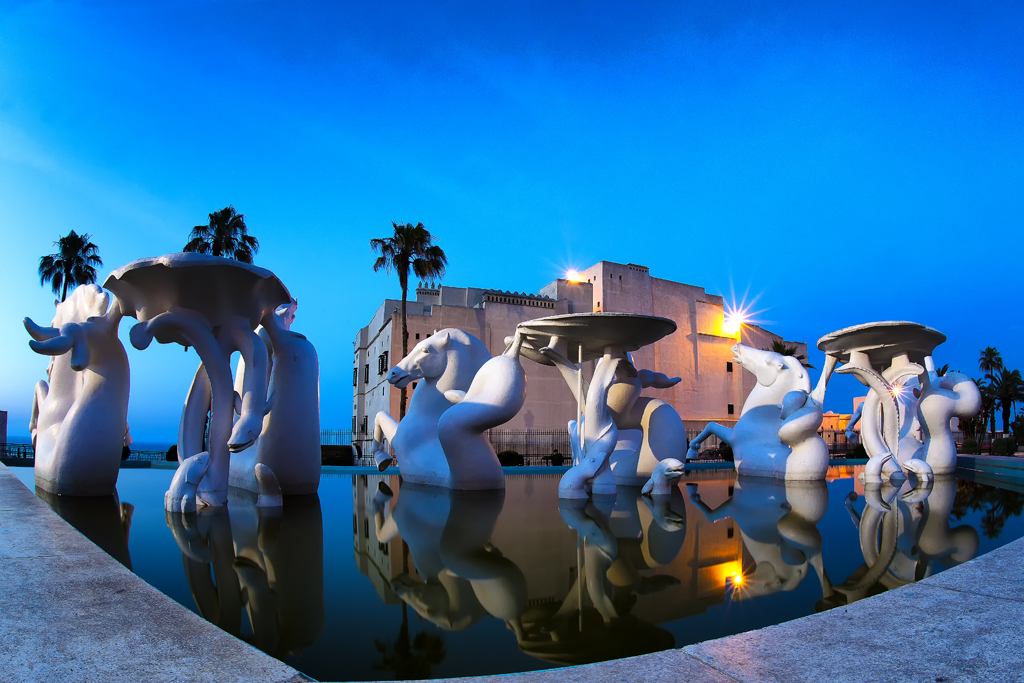
For tourists looking to shop, El Oued is the place to go buy local crafts. An extremely popular place to purchase slippers and carpets, the local markets provide endless exploration, but you should come prepared to bargain with sellers.
The town itself is like an oasis and has plenty of domed buildings, which protect against the intense summertime weather.
Djemila
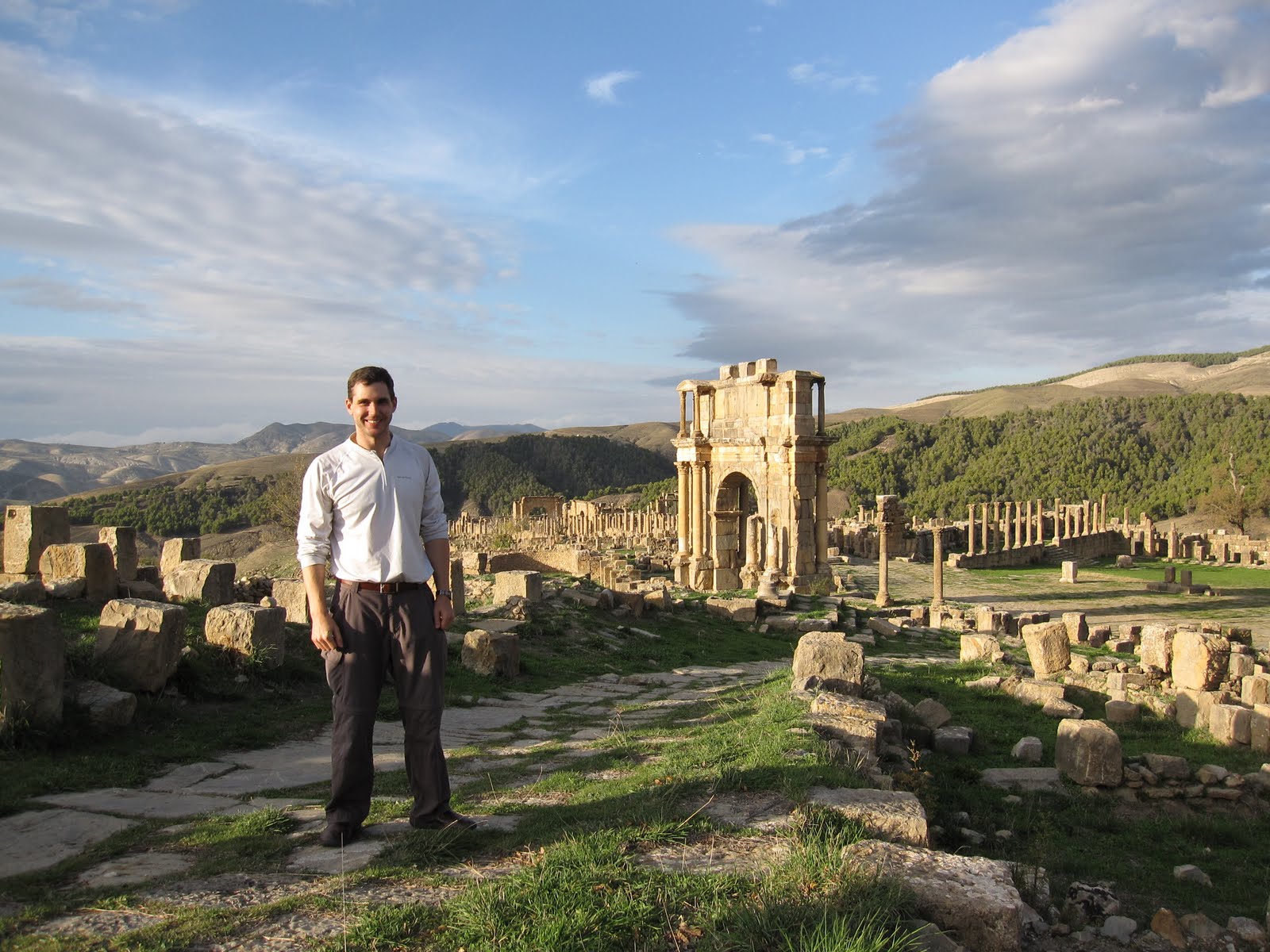
Djemila is Algeria’s first well-preserved Roman site and is situated in the mountains. The small town is filled with temples, basilicas, houses, and arches. Tourists can easily spend half a day here, exploring the area. If you spend longer, you can delve deep into the ancient Roman lifestyle while also enjoying the beautiful scenery.
Timgad

Timgad is arguably one of Algeria’s most famous sites and one of the most well-preserved Roman sites in the world. Here you can pay to enter the town and explore the historic roads, building remnants, and rows. As a UNESCO World Heritage Site, Timgad is very popular and frequently filled with tourists.
Bejaia

With a history of the Vandals, Byzantines, and Ottoman Empire, this is a popular tourist attraction due to its history and beautiful landscape. On the Mediterranean Coastline, Bejaia is also famous for its Spanish fortress. Monkey Peak is so named for the endangered Barbary Macaque monkey, which lives in the area.
Get Out and Go
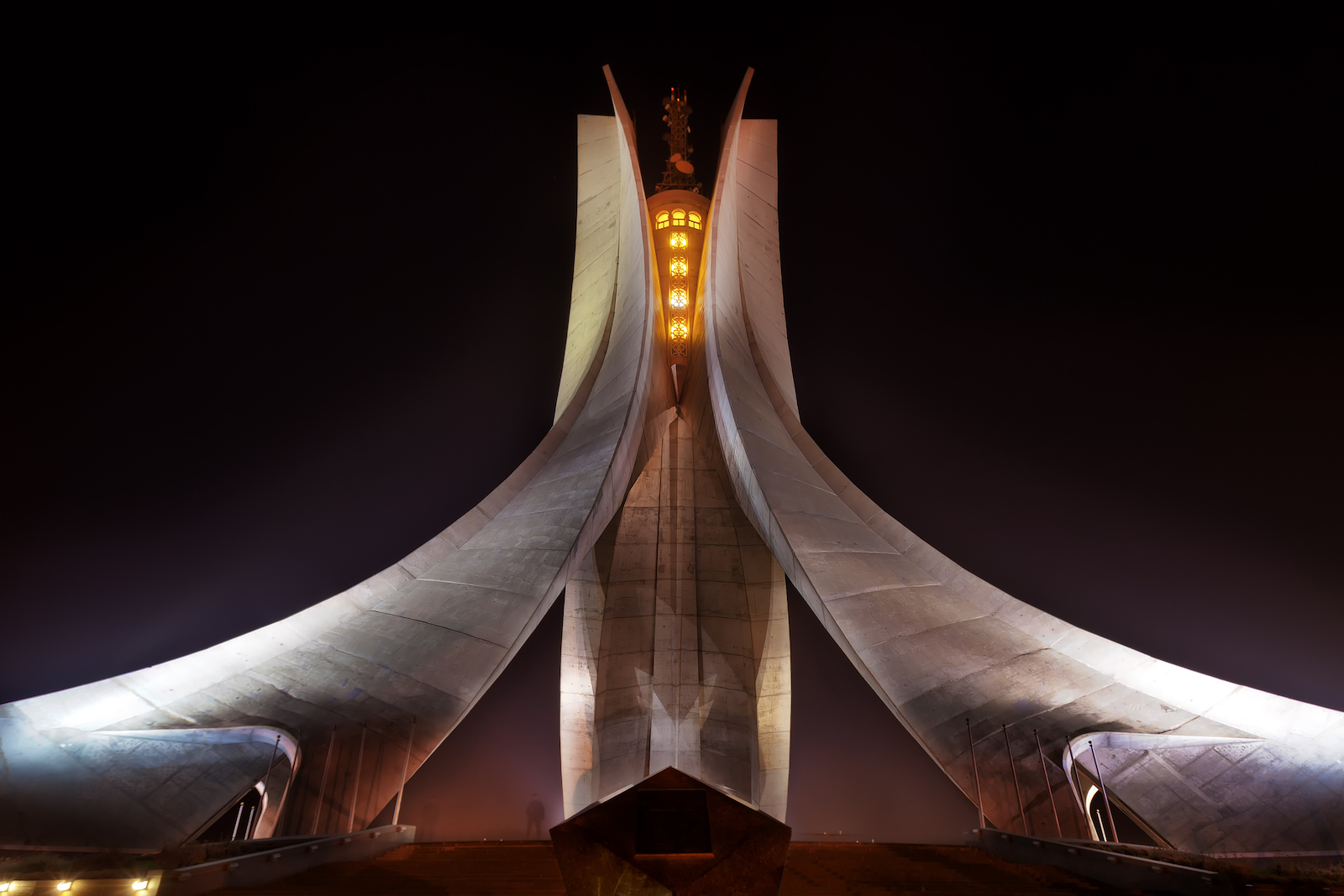
With a rich history and unending beauty, it is understandable why Algeria is a top travel destination. While the country’s politics have caused hesitation in some, those who do travel to this country’s borders are welcomed with open arms.
Here, you can celebrate the diversity of the past and embrace a new culture. With its unique charm, Algeria will be an unforgettable adventure.


 What Is Turkey Most Famous For?
What Is Turkey Most Famous For?